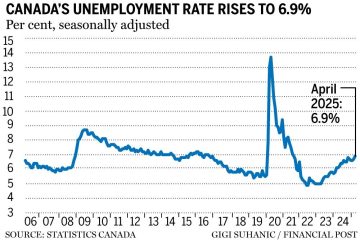Understanding Bus Cancellations in Canada

The Growing Issue of Bus Cancellations
Bus cancellations have become an increasingly significant problem in various Canadian cities, affecting thousands of commuters daily. As public transit plays a crucial role in urban mobility, the disruptions caused by bus cancellations can lead to widespread inconvenience, economic losses, and increased reliance on personal vehicles, contributing to traffic congestion and environmental concerns.
Recent Events and Causes
This past fall, several public transit agencies reported a rise in bus cancellations due to a combination of factors, including driver shortages, maintenance issues, and fluctuating ridership levels caused by the ongoing impacts of the COVID-19 pandemic. According to recent data from the Canadian Urban Transit Association (CUTA), an estimated 15% of scheduled bus trips have been cancelled in major cities like Toronto, Vancouver, and Montreal during peak hours.
In Toronto, the Toronto Transit Commission (TTC) announced in September that it had temporarily reduced service on several routes due to a lack of available operators. Similar issues were reported by TransLink in Metro Vancouver, where service disruptions were attributed to a shortage of bus drivers partly due to health-related absences and training delays.
Implications for Commuters
The consequences of frequent bus cancellations are significant. Commuters often experience long wait times, overcrowded buses, and increased travel times. This can exacerbate stress levels, particularly for individuals who rely on public transit to reach essential jobs or appointments. In a recent survey conducted by CUTA, over 60% of riders expressed dissatisfaction with their local transit service due to reliability issues, prompting calls for immediate action from city officials.
Future Outlook
As cities continue to recover from the pandemic, addressing the root causes of bus cancellations will be critical to ensure the reliability and efficiency of public transport. Many transit agencies are implementing targeted recruitment and training programs to bolster their workforce. Moreover, agencies are exploring the use of technology, such as real-time tracking applications, to keep commuters informed about delays and cancellations.
The emphasis on sustainable public transit solutions will also play a crucial role in attracting more riders back to the system. Initiatives such as expanded bus lanes, improved scheduling, and electric buses are being discussed as part of a broader strategy to enhance urban mobility.
Conclusion
In summary, bus cancellations are a pressing issue in Canada that requires substantial attention from transit authorities and local governments. As commuter needs evolve and cities aim for greener transit solutions, finding effective ways to minimize cancellations and improve service frequency will be essential for restoring public trust in public transportation and fostering a sustainable urban environment.









